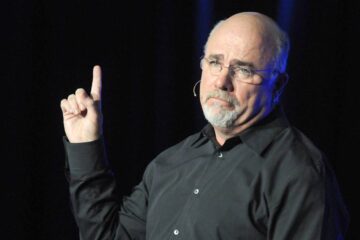The past few months have mostly been a string of bad news and share price dips for Tesla (TSLA) stock.
Once hailed as the undisputed leader among electric vehicle (EV) producers, the company is watching its market share slip away as backlash against CEO Elon Musk continues to compromise sales on a global scale.
💵💰Don’t miss the move: Subscribe to TheStreet’s free daily newsletter 💰💵
Tesla recently disappointed investors when its Q1 earnings report revealed worse-than-expected results, even after Wall Street analysts scaled back their estimates. While Musk’s vague statements about returning to the company sparked a temporary rally, share prices have already slipped back into the red, and any gains are quickly being erased.
This week, the company received even more bad news as Washington state legislators voted to pass an EV tax credit bill. It is aimed at levying an extremely specific tax that targets Tesla directly.
A new bill introduced in Washington state could severely compromise one of Tesla’s revenue drivers.
Image source: Shutterstock
Lawmakers seem to be in favor of the ‘Tesla tax’
Only two weeks ago, democratic Washington House members Joe Fitzgibbon and Nicole Macri introduced House Bill 2077, a piece of legislation they were sponsoring, as a means of helping the state fill a multi-billion-dollar budget hole.
The bill has been quickly passed by state lawmakers, indicating that there has been little opposition from either party. It is primarily aimed at taxing the credits issued to automakers for EV sales, specifically a 2% tax on credits sold to other companies and a 10% tax on credits that are stored for future use.
Related: Experts sound alarm on Elon Musk’s misguided Tesla plan
EV tax credits have been a controversial topic in recent years, especially when President Joe Biden doubled down on them as a means of spurring EV adoption. The credits can be claimed by buyers on their tax returns for a $7,500 rebate if the vehicle is new.
At first glance, that may seem fairly straightforward. In fact, many people who don’t own or drive EVs might not pay it any mind. However, a closer look reveals why this is bad news for Tesla, as it is the only company that meets the threshold for the credit tax.
“The bill notably includes an exemption for automakers that bank or sell fewer than 25,000 credits per model year,” GeekWire reports. “That means the tax, at least for now, applies only to Tesla — leading some to dub it the ‘Tesla tax’ and to accuse lawmakers of taking punitive action against company founder Elon Musk, who leads the Trump administration’s divisive Department of Government Efficiency.”
While selling EV credits isn’t typically seen as a growth driver for Tesla, it has quietly proven highly lucrative.
According to an analysis from E&E News, the company “earned $10.7 billion from selling credits created by government climate programs — a total that accounted for a third of Tesla’s profits over the last decade” and accounted for 43% of Tesla’s net income during the first three quarters of 2024.
More Tesla News:
Elon Musk faces accusations from major tech rivalAnalyst issues scathing take on Elon Musk and Tesla stockElon Musk gets more bad news as rival launches the anti-Tesla
Musk has often complained that Tesla is being “strangled by regulations,” but his arguments often leave out key parts of the story. Based on E&E’s analysis, it seems that Tesla might not have survived without the ability to sell these credits.
This new policy is proving highly controversial, even as it moves quickly
For someone who has been claiming for years that his company is being unfairly targeted for political reasons, Musk has issued no statements on the legislation, even as it moved swiftly through the Washington state government and recently reached the desk of democratic governor Bob Ferguson.
Related: Elon Musk reveals plans to do exactly what he’s been warned against
The bill’s supporters have touted it as necessary for the state, citing its ability to help it recover millions in unintended “windfall profits” that have benefited Tesla and Musk significantly. However, its critics argue that it is aimed at harming Musk for his political affiliations and may negatively impact EV adoption in the state.
According to Fitzgibbon, though, the bill is simply an economic necessity to offset the impact of Washington’s current budget crisis and the freezing of EV infrastructure. “We didn’t have a budget crisis until this year. And we didn’t have the federal government revoking huge amounts of federal dollars for EV infrastructure funds,” he recently stated.
Fitzgibbon added that he doesn’t care who the CEO of the impacted company is, citing data on Washington’s car-emission credits that shows one thing: Tesla has built up the bulk of its credits under the state’s program and become highly profitable as a result.
Related: Veteran fund manager unveils eye-popping S&P 500 forecast


